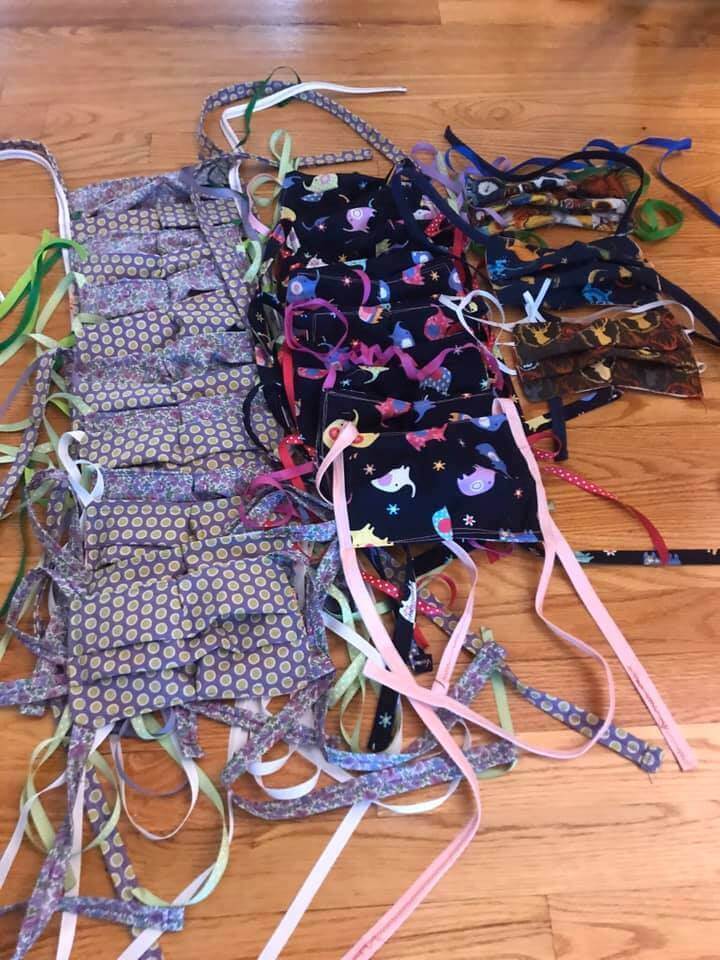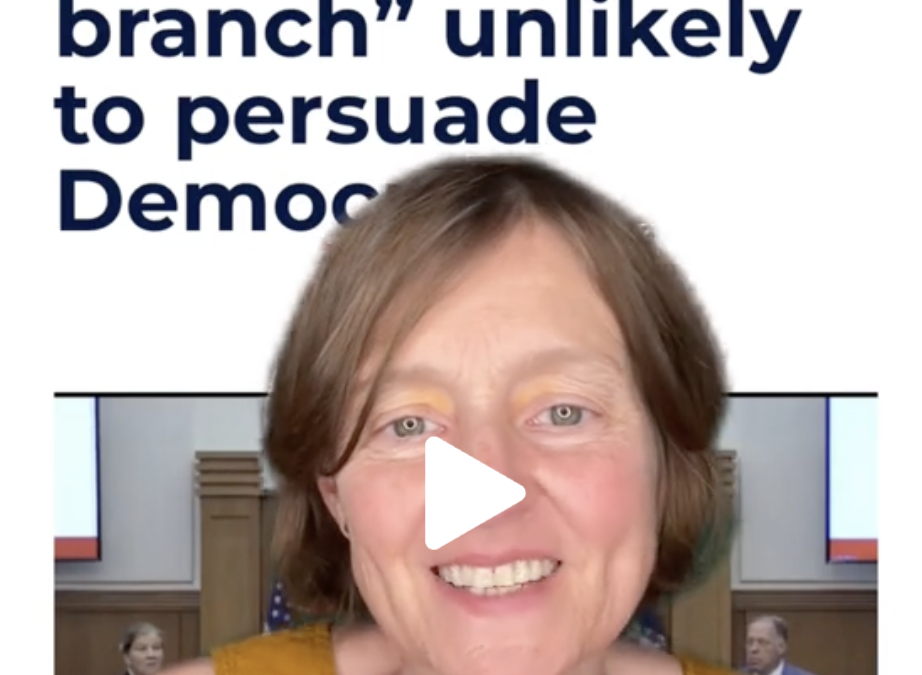
The Arlington-based volunteer group has never met, but has amassed thousands of volunteers and N95-respirator mask covers in a matter of days
The novel coronavirus pandemic has led to a critical shortage of face masks, respirators and other “person protective equipment” that doctors, nurse and other healthcare professionals need to maintain basic safety around the highly contagious virus.
Governors and federal officials have been scrambling to get more as fast as possible, but the need is still high. That’s where crafters come in. Groups like the Million Mask Challenge, based in Arlington, are sewing masks that are specially designed to fit over N95 respirator masks and extend the number of times they can be used.
“We’re making a large facemask that has ties on it and it can fit over the large N95 respirators that health care providers wear and which are in limited supply,” Christina Headrick, a founding member of the group, said in an interview with Dogwood. “So they prevent the cover of those respirator masks from getting soiled or wet, and then the provider can carefully take off the homemade mask and replace it with another covering and hopefully keep the N95 underneath it in better shape.”
Headrick is primarily doing outreach for the organization.
“Though I am a person who stitches other people together, but I’m actually a pretty mediocre seamstress,” Headrick said with a laugh.
While homemade masks are less effective than N95 or surgical grade masks, they can be better than a bandana or loose scarf, Headrick explained. They also have the benefit of being washable, the cloth masks can be washed in very hot water and reused as needed.
The Arlington group has grown rapidly in recent days, expanding from the founding nine organizers to a team of 50 working on everything from the website, to designing new versions of masks, to making them more effective. The group has a total of nearly 2,000 total volunteers, at the time of this writing, and so far they have donated well over 2,500 masks to care providers. Headrick reports that more than 100 healthcare providers have reached out with requests for the homemade masks.
Headrick said that while it felt like organizers have worked together for a long time given the quick success of the organization, they have actually never met.
“I was on the Arlington Neighbors Helping Each Other Through COVID Facebook group and there were several other people on there thinking about the same thing,” Headrick said.
“What’s really interesting is that none of us have actually ever met each other in person. We had a Zoom meeting and from there we started the website and Facebook group, did 48 hours of research, had a nurse basically get lots and lots and lots of feedback, we got some very professional seamstresses and it was kind of this spontaneous response group.”
Vanessa Fulton, also a founding member of the Million Masks Challenge, has spent her time focused on the sewing and designs.
“The sewing stuff I love,” she said in an interview. “There were a lot of patterns out there for masks, and there were a couple things that were really important [when we were looking at designs]. One, we wanted was for the masks to be multi-functional, so accomplishing the most goals and keeping people safer. And two, it was really important to us that the pattern was easily accessible for people who were beginners.”
The group’s website and Facebook page have designs and instructions to make the masks, which are double layered and made with tight knit fabrics like cotton or flannel. Although Fulton is a busy working mother of two kids, she said each mask takes only 10 to 20 minutes, and the experience can be cathartic.
“I obviously do not really have free time, and yet I have been staying up until 2:00 a.m. to do this because I feel like I need to be doing something,” Fulton said. “I can’t sit here in my house and wait for this storm to hit, you know?”
Along with providing medical workers with more equipment, it quickly became apparent that the group was also providing sewers with a sense of community too.
“Homemade masks have limitations, I mean they’re not as effective as hospital masks, let’s just be clear about that,” Fulton said. “But at the same time, I think what we’re doing is really important because the health care providers that are getting our masks feel supported beyond just like wearing a piece of fabric. It’s like, oh, somebody made this for me. Somebody is rooting for me. Somebody is cheering for me. And then there’s that other layer of giving people a place to just be together right now and do something.”
Politics

Virginia NAACP to sue Youngkin over handling of DEI records requests
The civil rights group said it would take Youngkin to court for not releasing communications between his office and state universities related to...

VIDEO: After vetoes, Youngkin’s budget “olive branch unlikely to persuade Democrats
Can the Democrats in the General Assembly and Republican Gov. Glenn Youngkin really find "common ground" among his proposed state budget amendments?...
Local News

Virginia verses: Celebrating 5 poetic icons for National Poetry Month
There’s no shortage of great writers when it comes to our commonwealth. From the haunting verses of Edgar Allan Poe, who found solace in Richmond's...

Join the fun: Recapping Family Literacy Night’s storybook adventures
When’s the last time you read a book aloud with a loved one? If it’s difficult to answer that question, then maybe it’s time to dust off that TBR...




